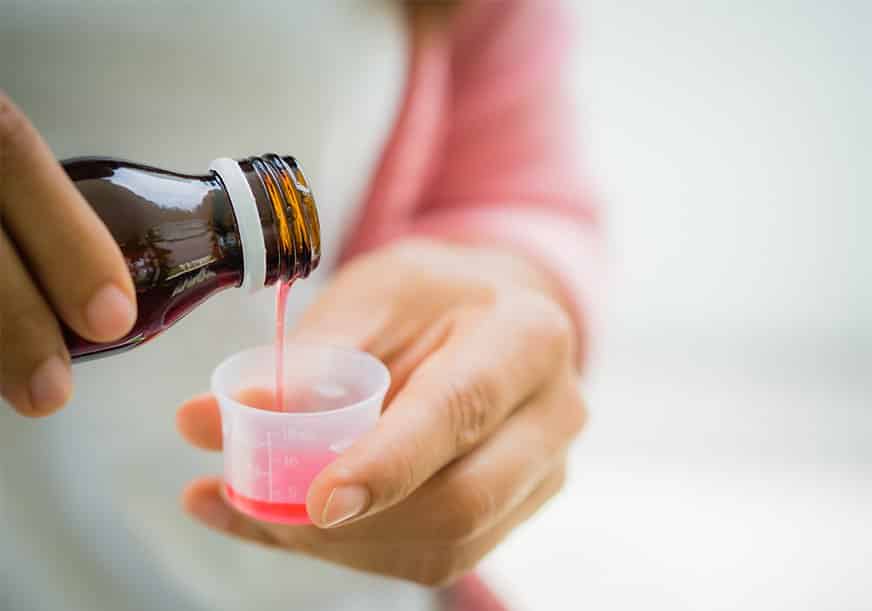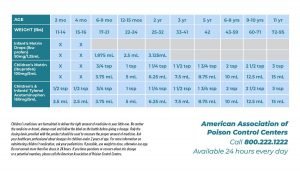It can be difficult to know when to give you children medicine, especially since it seems inevitable that they get sick late at night or on the weekend when you aren’t sure how to reach your doctor’s office. When we want nothing more to see our kids feeling better, there are a few tips to helping them along with over-the-counter medication.
We even have these medicine dosage magnets that you can stick on your fridge to help you remember!
(Click the image for a printable version)
How much do they weigh?
Keeping track of the weight of your child, especially in those earlier years, is crucial for these emergency moments. At every doctor appointment, take note of their weight and consider keeping a note on your phone so you have that information on hand. When they get a little older, having a scale for them to step on can be helpful, but their weight will likely fall into a range seen at the top of our recommended chart.
As they get a little older, their age can be taken in consideration along with their weight. However, weight should be the primary rule in dosage. While we include information for dosage for patients under 2, it is helpful to have a discussion with your pediatrician ahead of time during one of your regular check up appointments.
How often should they take something?
You should not exceed more than 5 doses in a 24-hour period. Most medicine will last 4-6 hours in your child’s system according to the American Association of Pediatrics. Your child can experience harmful side effects of too much medication, it is possible to overdose, so make sure to carefully measure and keep track of how much you are giving your child.
To measure your medication, use a syringe rather than a kitchen spoon or cup. By drawing medication into the syringe, you will have a more accurate dosage and it can be easier to dispense into a child’s mouth.
When do I call the doctor?
After medication is given, if there is no change in temperature, if symptoms are increasing, or if your child is still uncomfortable, you can call your pediatrician or Integrity Urgent Care to make an appointment for your child. The Mayo Clinic also suggests seeing a physician if a fever lasts for more than a day.
Additionally, if your child develops a rash or begins to throw up after taking a medicine, call a doctor right away. They may be allergic to the medication and need immediate help.
Is there a difference in brands?
By comparing labels, you may be able to find a cheaper alternative to have on hand. That being said buy your medication only from reputable stores and never from an individual. Make sure that your medicine is not expired and is safely stored away from a child’s reach.
What about other medications?
This chart is only for pain and fever reducing medication. All other medications should be prescribed from a medical professional and their dosage should be followed. This includes other over the counter medications like Benadryl, Claritin, or other common medications kids use on a regular basis.
If your child needs to be seen by a doctor, our clinics are open and ready for patients, seven days a week, from 8am to 8pm. We can help treat and care for your child, providing the relief they need and helping you feel better too. Come see us as a walk in or make an online appointment today.




